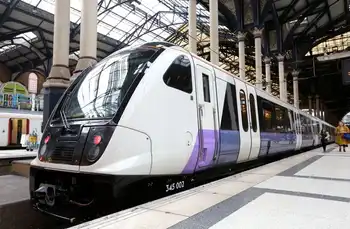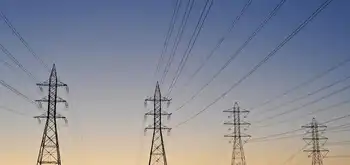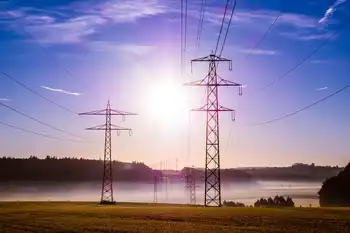Missouri senators consider bill to pay for power plants
Missouri law bars investor-owned utilities from passing the expenses of building a power plant to their customers before the facility starts producing electricity.
Ameren is considering construction of a second nuclear reactor at its Callaway County power plant and says repealing the 1976 state law is critical to financing the estimated $6 billion project.
A large crowd attended the Senate Commerce, Consumer Protection, Energy and the Environment Committee hearing on the legislation, which would apply to new plants powered by nuclear energy, renewable sources or new coal technology.
State regulators would be required to approve a construction project and the possible quarterly increases in electric rates authorized by the bill.
Democrats and Republicans have signed on as sponsors of the Senate bill, which supporters say could yield an economic boon from construction of the reactor while answering a need for energy production that would not increase carbon dioxide emissions.
But the measure also drew bipartisan criticism from the committee, mostly focused on protecting consumers. The committee's chairman, Republican Sen. Brad Lager of Savannah, said the bill needed revision.
"I don't think I can get the bill out of committee, let alone out of the Senate," Lager said.
Utility regulation is a top legislative issue this year, and more than two dozen witnesses lined up to testify at the hearing. Observers stood in the aisles and sat on window sills of the Senate's largest committee room as the session stretched into the evening.
Thomas Voss, AmerenUE's president and chief executive officer, broke little new ground in his testimony. He reiterated that the company could not build a second Callaway reactor if the Legislature doesn't allow cost recovery during construction.
"We think we need to keep this option open. We think it's good for the state to have this option open," Voss said.
Voss said AmerenUE already has spent tens of millions of dollars to apply for the license, buy forgings and for other engineering costs.
In an interview after the hearing, Voss said he believes nuclear power is in the state's best interest but that there needs to certainty with the financing to attract investors. He said the bill concerns a "financing method" and that some critics seemed to believe the legislation was about endorsing a second nuclear reactor.
Supporters of the legislation include environmental lobbyist Irl Scissors, who worked to help pass a 2008 ballot measure that requires utilities to use more renewable energy sources.
Scissors now is the executive director for a coalition backing the bill. In written testimony submitted to the committee, he said lawmakers should support efforts to expand nuclear power production because it's needed for a "balanced energy portfolio."
"Nuclear is the cleanest workhorse, baseload energy source available today," Scissors wrote.
Although some — particularly environmentalists — oppose building a nuclear power plant, much of the opposition centered on how residential and industrial customers would be protected.
Noranda Aluminum Inc., which has a plant in New Madrid that is Ameren's largest retail customer, said it expects to pay more than $200 million extra for electricity if rates are allowed to increase for a new plant. Noranda chief executive officer Kip Smith urged senators to bolster consumer protections.
"We're not anti-nuke," Smith said. "We're just convinced there are elements of this bill that need modification."
Voss said consumers are protected because state utility regulators would need to sign off on increases.
It's not entirely clear how much electric customers would pay if utilities are allowed to charge during the construction of power plants.
The Missouri Energy Development Association, a trade group for investor-owned utilities such as Ameren, estimates that residential customers would pay 1 percent to 3 percent more per year and just over 10 percent for the entire project, if AmerenUE builds a second nuclear plant in Callaway County. Those assumptions are based on a six-year construction project with rural electric cooperatives and municipal utilities partially buying into the plant.
But some critics of the legislation estimate that electric rate increases could be significantly higher. Missouri Public Counsel Lewis Mills, who advocates for consumers before state utility regulators, said he expects rate increases will be at least double Ameren's estimates.
John Coffman, a consumer advocate who represents Missouri AARP and the Consumers Council of Missouri, said the legislation is an attempt to shift risk for the building of new power plants from a utility and its private investors to electric customers who cannot get electricity from anyone else.
"We're talking about a bailout for a company that does not have to compete for customers, and already has an opportunity to earn a healthy return," Coffman said.
The committee did not vote on the bill and plans to get more information from state regulators.
Related News

Crossrail will generate electricity using the wind created by trains
LONDON - Charlotte Slingsby and her startup Moya Power are researching piezo-electric textiles that gain energy from movement. It seems logical that Slingsby originally came from a city with a reputation for being windy: “In Cape Town, wind is an energy source that you cannot ignore,” says the 27-year-old, who now lives in London.
Thanks to her home city, she also knows about power failures. That’s why she came up with the idea of not only harnessing wind as an alternative energy source by setting up wind farms in the countryside or at sea, but also for capturing it in cities…





